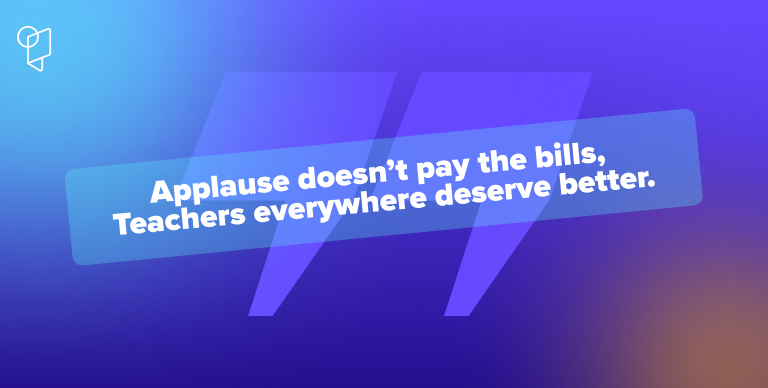A teaching crisis with global echoes 🌍
From Chicago to Cape Town, one truth is universal: when teachers aren’t valued, classrooms suffer.
In the U.S., the teacher shortage has hit a tipping point. Low pay + relentless workloads = exhausted educators walking away. Enter Senator Bernie Sanders’ Pay Teachers Act—a proposal to guarantee every full-time U.S. public school teacher earns at least $60,000 a year, with cost-of-living bumps and growth-based raises.
It’s bold. It’s political. But the real question? Will it deliver—and what can the rest of the world learn from it?
What the Pay Teachers Act actually puts on the table
Here’s the promise, no jargon attached:
- $60,000 starting salary for all full-time U.S. public school teachers
- Automatic inflation adjustments to keep salaries realistic
- Career-based raises tied to experience + professional development
- A national rebranding campaign to restore respect to teaching
If passed, this wouldn’t just reshape American education—it would spotlight teaching as a serious profession again.

Why the world is watching 👀
America isn’t the only one facing a teacher pipeline problem. Globally, countries are debating the same issues: how to recruit, how to retain, and how to make teaching aspirational again.
- Recruitment: A clear, competitive salary makes teaching appealing to new grads worldwide.
- Retention: Better pay reduces burnout exits—whether you’re in Texas or Tanzania.
- Equity: Funding debates in U.S. districts echo challenges in the UK, India, and beyond.
- Professionalism: Linking pay to growth mirrors high-status teacher models in Finland + Singapore.
The U.S. may become the next big case study for how salary reforms ripple through education systems worldwide.

The messy middle: implementation headaches
Big promise, tricky delivery. Here’s what districts (and observers abroad) should watch:
- Funding formulas: Who pays what—feds, states, or local budgets?
- Rural vs. urban: Will all districts benefit, or just the wealthier ones?
- Fair raises: Career-based increases only work if they’re transparent.
- Beyond money: No paycheck can fix unsustainable workloads or poor support.
Translation? Money matters, but design matters more.

EDU Passport’s global checklist for leaders ✏️
If the Pay Teachers Act moves forward, here’s the playbook for schools and districts (and globally curious policymakers):
- Model the money: Budget early, test phased plans.
- Equity first: Prioritize high-need schools to close—not widen—gaps.
- Pair pay with support: Build mentoring, PD, and wellness into the package.
- Communicate clearly: Teachers need straight talk, not politics.
- Work collectively: Collaborate with unions + associations to design realistic rollouts.
Money without a roadmap = chaos. Money with a plan = transformation.

The bottom line
The Pay Teachers Act could be a turning point—not only for the U.S., but for global education policy. Done right, it positions teaching as a respected, sustainable career. Done wrong, it risks becoming another unfunded promise.
Either way, one truth spans continents: applause doesn’t pay the bills. Teachers everywhere deserve better.
💡 Want the global picture?
Download our free Global Teacher Pay Playbook → 7 lessons from countries like Finland, Singapore, and the UK on how teacher pay reforms actually worked.
👉 Get the PDF now
Want to turn policy into practice?
At EDU Passport, we take policy headlines and turn them into clear, actionable steps for schools, leaders, and communities.
👉 Join EDU Passport’s global education community today and access insights, strategies, and tools to make change real.





















